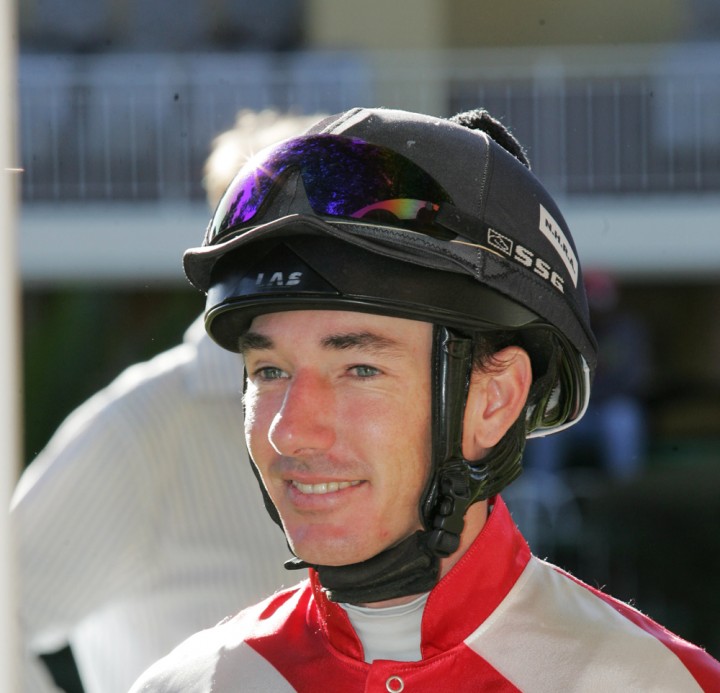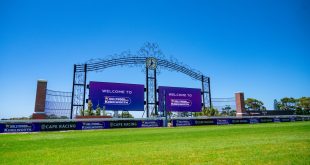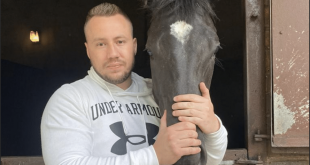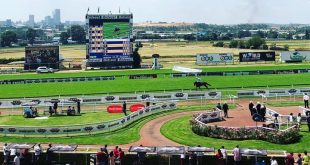Warren Kennedy decided towards the end of last season to chase the South African Jockey’s championship this term and he has made a fine start in this quest.
Kennedy said it was a mixture of improved riding and better support which had enabled him to climb the ladder.
He added, “Getting rides in bigger races gives you more responsibility and if you ride well you get better support.”
This snowball effect has elevated many a jockey from journeymen into the top echelon and is the reason why it is so crucial to seize the opportunities which come your way.
Kennedy did just that last season and made the breakthrough.

He now has the continued support of Gareth and Gavin van Zyl and others in KZN, of the increasingly prominent yard of Paul Peter and others in Gauteng, and of a number of trainers in Cape Town.
His other advantage is his light weight. His official riding weight is 51kg.
By the close of play on Tuesday he was in second place on the national log on 23 winners at a strike rate of 13,21, five winners behind leader Muzi Yeni.
When a jockey’s first name is dropped by the racing media and public it is often the sign of making it into the big time.
Latterly both reporters and punters have been saying “Kennedy is up” as it is now taken for granted that this is a bonus.
This is as opposed to such statements in the past as “Warren Kennedy, who has been in good form, is aboard.”
Kennedy can be expected nowadays to get the best out of a horse and fully deserves his prominent position.
It is all about knowing your opposition in a race and accordingly finding a good position in the running for your mount.
He has become an expert in this regard.
The public pay most attention to the finish but the horse will often do this for a jockey if positioned well throughout the earlier part of the race.
Kennedy’s statistics have also risen dramatically.
One had to go to the second page of the NHRA’s national jockeys log to find his name in 28th place in the 2014/2015 season with 39 winners at a strike rate of 6,2%.
In the 2015/2016 season he rode 67 winners at a strike rate of 8,8% for 17th place on the log.
In the 2016/2017 season he rode 84 winners at a strike rate of 11,9% for 17th place.
In the 2017/2018 season he rode 79 winners at a strike rate of 10,6% for 14th pace.
Last season he broke through the 100 barrier mark, riding 139 winners at a strike rate of 12,2% and finished 7th on the log. Furthermore, he scored his first Grade 1 win, riding the Gavin van Zyl-trained Gabor to victory in the Thekwini Stakes over 1600m at Greyville on eLan Gold Cup day. He also had three Grade 2 successes, including a classic race triumph on the Mike de Kock-trained Nafaayes in the Wilgerbosdrift Gauteng Fillies Guineeas, as well as a Grade 3 win and three Non-Black Type feature race victories. He also had a momentous day at the Vaal on July 4, riding six winners in a meeting which had only eight races available to professional jockeys.
Kennedy’s fortunes began swinging upward when joining the Gavin van Zyl operation at Summerveld a few years ago.
He was the sixth stable jockey used by Gavin but is the longest standing. He also automatically became stable jockey to Gareth van Zyl when the latter branched out on his own a couple of years ago.
Gavin said, “When Warren joined us he was prepared to work with me in becoming what I was looking for in a jockey. We were going to start from a point and make it a work in progress and iron out certain aspects. One of Warren’s strongest points is he doesn’t get offended even with criticism or on the occasions I have had to jock him off. He has never sulked and has been prepared to stick it out for the long haul and we have thus been able to build together. He has always had the talent. He was silverware but just needed polishing. It has been rewarding to see him grow in confidence as a rider.”
Kennedy’s daughter Jamie was born to wife Barbara on May 30 and this was undoubtedly the biggest highlight of a memorable year for the couple.
Warren concluded by saying he was thus seizing the opportunity to chase the championship now before Jamie was walking and talking and noticing his absence.
By David Thiselton








